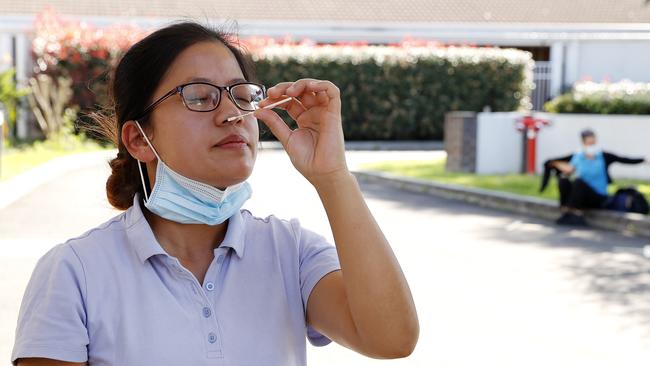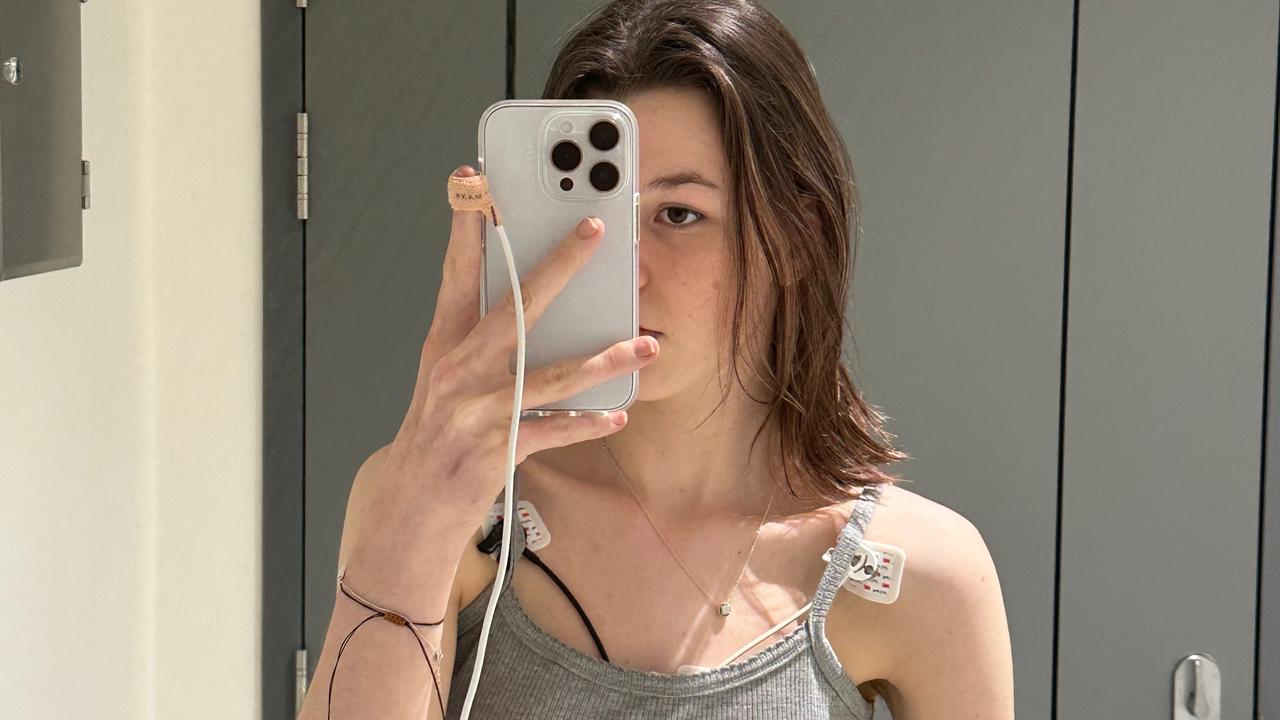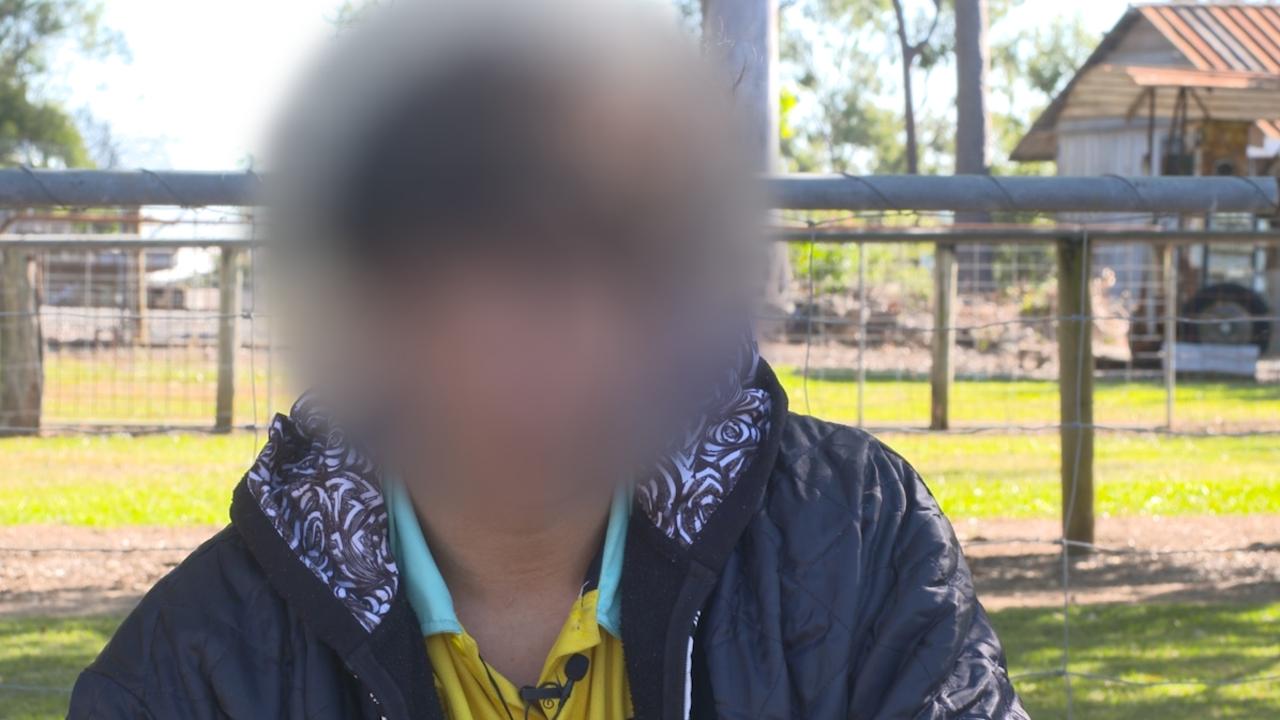Local vaccine developer says new directions sabotage local Covid-19 vaccine development
An SA Covid-19 vaccine developer who has helped make a jab currently being used by millions overseas says a new direction from the SA government sabotages his local trials.
Coronavirus
Don't miss out on the headlines from Coronavirus. Followed categories will be added to My News.
A local researcher who has developed an approved Covid-19 vaccination that’s been used on millions of people around the world says the South Australian government is trying to sabotage a locally developed vaccine.
State Co-ordinator and Police Commissioner Grant Stevens yesterday issued a new direction that excludes anyone who has been vaccinated as part of a Covid jab trial as exempt from vaccination mandates.
Professor Nikolai Petrovsky, a Flinders University Professor in Medicine, has developed a Covid-19 vaccination he believes to be the most effective in the world.
Covax-19 has been approved for use in Iran, and more than 2 million doses have been administered with no side effects as seen in other ATAGI approved vaccines like AstraZeneca and Pfizer so far.
The vaccine is currently under review by the Therapeutic Goods Administration, but more clinical trials in SA are not possible following the announcement of these news directions, Prof Petrovsky said.
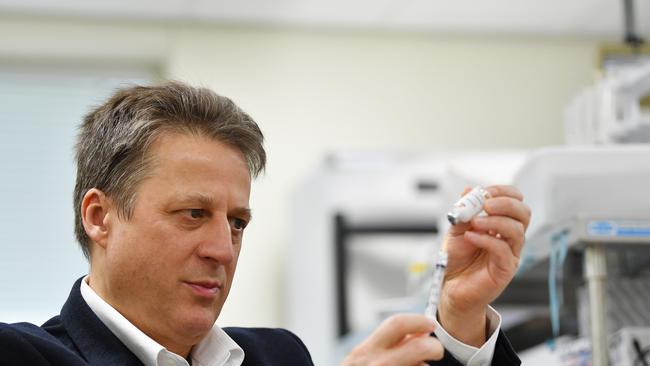
It is the first synthetic protein vaccine against Covid-19 to receive market authorisation, after showing protection against the Delta virus variant in a Phase 3 clinical trial in 16,876 subjects in Iran.
The clinical trial, of which 14,000 people expressed interest in, was set to kick off in SA in days but may not be possible now, he said.
“The trial will go ahead, but this sudden change to the rules by the SA government is actively discriminating against anyone who wants to be part of a vaccine trial in South Australia, because essentially if they join the trial they’re going to be excluded by these government vaccine mandates from their workplace and even from seeing their doctor for their routine medical care,” Prof Petrovsky said.
People can only take part in the trial if they have had no other Covid vaccination for the duration of the trial.
“They seem to be trying to compel people to only have the experimental genetic vaccines, rather than allow them to have access to a more traditional protein-based vaccine as part of this clinical trial, I simply do not understand their motivation in doing this,” he said.
“South Australia is saying it no longer wants to be a destination for doing clinical trials, this sends a terrible signal.”
Prof Petrovsky has been fully vaccinated with Covax-19 vaccine, but is classed by the mandates as unvaccinated meaning he cannot enter any medical settings, including his lab at Flinders.
“To have such a successful vaccine and South Australia the only government it would seem determined to still try and sabotage the program is just extraordinary, and disappointing,” he said.
The new rules affect workers in residential aged care, education and early childhood settings, disability or in-home aged care, health care and passenger transport.
A fundraiser calling on the vaccine to be approved for use in Australia has raised more than $760,000.
SA Best’s Frank Pangallo was part of the initial Covid-vax trial in June last year, and had the AstraZenca after.
“This is a deliberate move by SA Health to continue to thwart the pioneering work of Professor Petrovsky and take choice away from participants in the next important phase of his Covax-19 trials,” Mr Pangallo said.
He said the vaccine may be useful as the country battles the next phase of the Omicron strain.
“This is vengeful bureaucracy at work here at a time when the world is facing an additional threat from an unknown variant and others that are out there. We should be throwing money at Covax-19's work,” he said.
SA Health said the state recognised Covid vaccines approved or recognised by Australia’s Therapeutic Goods Administration because those vaccines had been rigorously assessed for safety, quality and effectiveness.
A number of emergency management Covid directions have been updated and specific reference to Covid vaccine trials removed.
Why South Aussies still can’t buy Covid tests in supermarkets
Special “rapid” Covid-19 testing will be expanded to high-risk medical workers but South Australians will still be banned from buying them in supermarkets.
SA Health on Wednesday announced rapid antigen tests would be approved in health care settings, including hospitals, as well as medical and dental practices, to regularly screen staff.
Officials say the sale of over-the-counter kits, including in supermarkets and pharmacies, will stay banned – despite approval interstate – but “this may be reviewed in future”.
Legal directions are being drafted but no date has been set.
SA Health on Wednesday reported two women, aged in their 30s and 50s, and a man in his 60s as the state’s latest cases – one of whom was unvaccinated.
One is a close contact linked to the Norwood cluster of 28 cases. There have been 54 cases since borders reopened on November 23 and two patients are in hospital.
Government heat maps show infectious patients are from most areas of Adelaide. There has been a spike in testing, with 15,732 swabs taken on Tuesday, the highest levels since the Modbury cluster five months ago.
An SA Health spokeswoman said that with more cases of Covid now in the community, it was expanding rapid testing, which can produce unreliable results within 20 minutes.
She said PCR testing, which involves swabbing of nose and throats, was the most sensitive, accurate and “gold-standard” Covid screening.
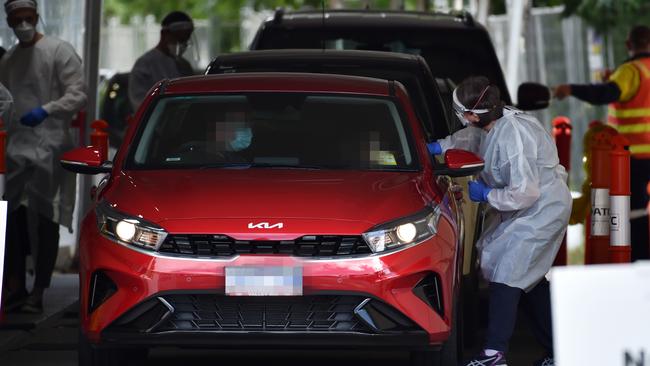
“Due to the fact health care settings manage people at higher risk of Covid, rapid antigen tests will soon be approved for use,” she said.
“The tests will initially be used for workforce screening and will not be used for widespread diagnostic testing of patients.
“Rapid antigen tests have a lower sensitivity and are less accurate but are useful in the context of screening if done (regularly).”
Regulations prohibit sale of the tests in SA despite approval by the medicines watchdog, the Therapeutic Goods Administration.
Interstate truck drivers can already access rapid testing.
Chief public health officer Professor Nicola Spurrier told The Advertiser last month that supermarket sales would only occur during outbreaks of community transmission.
More Coverage
